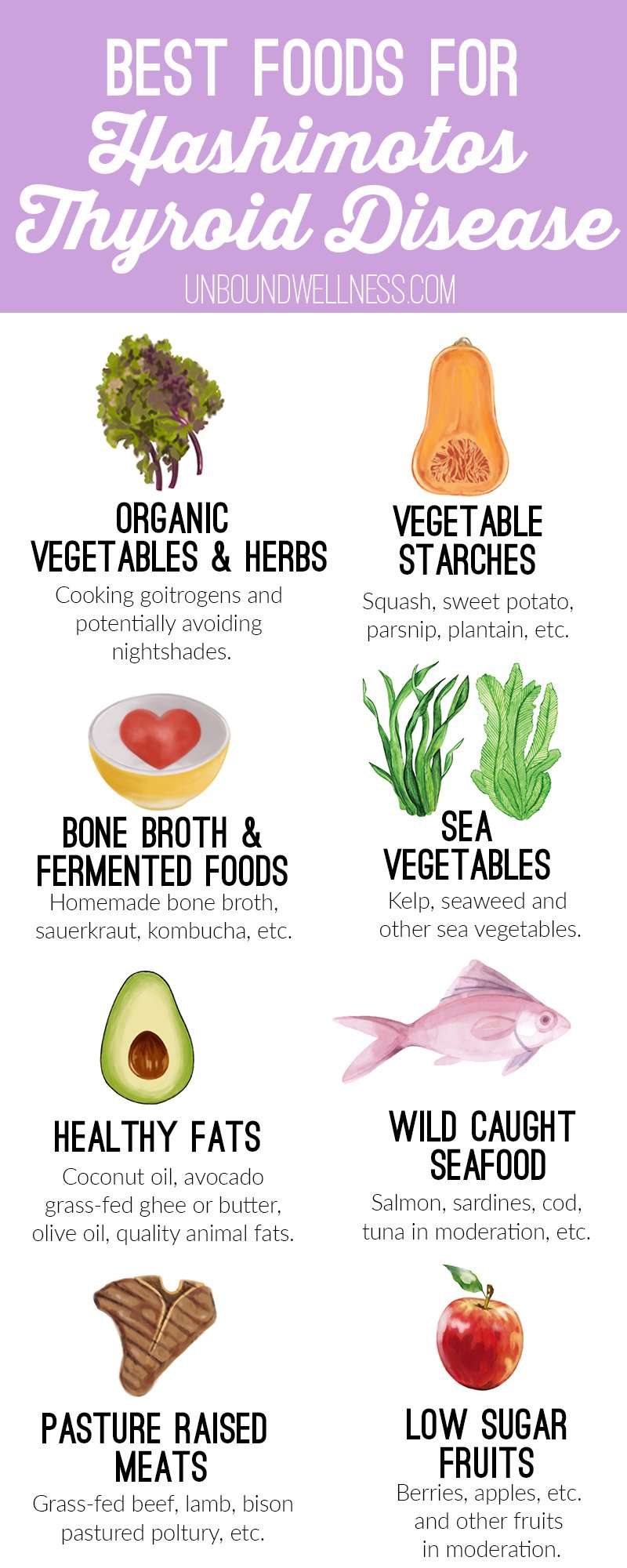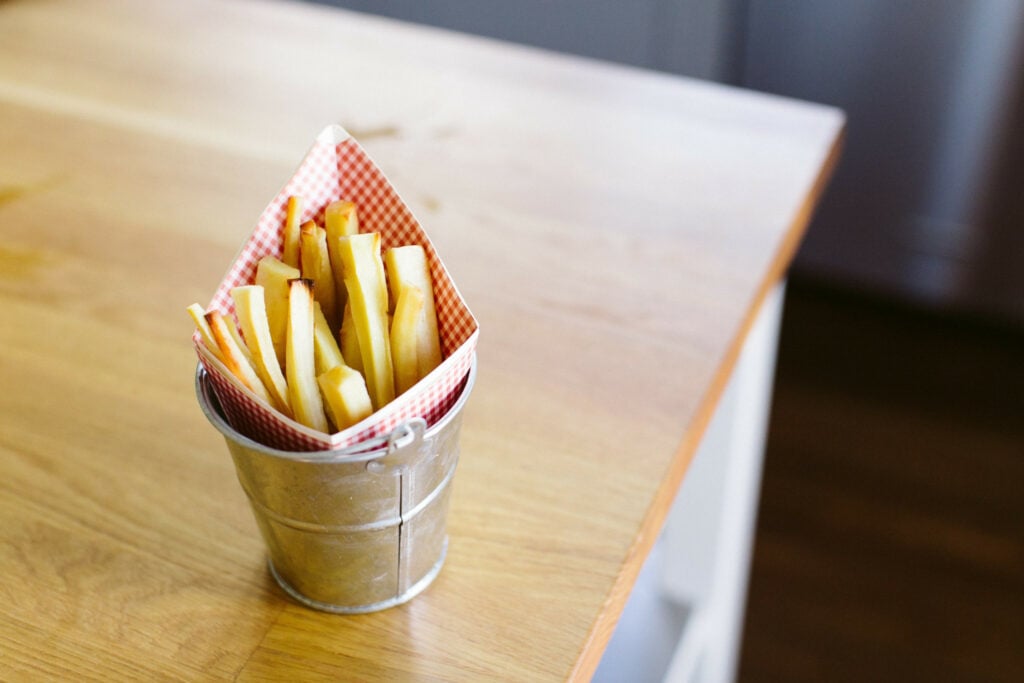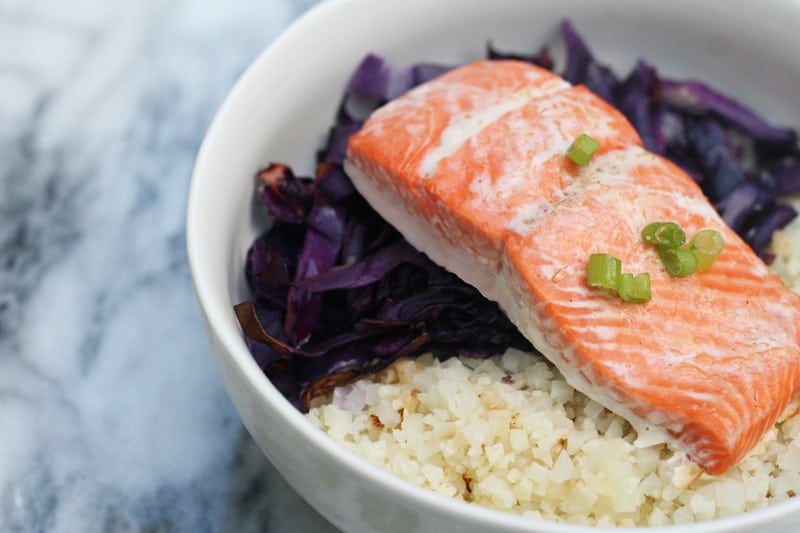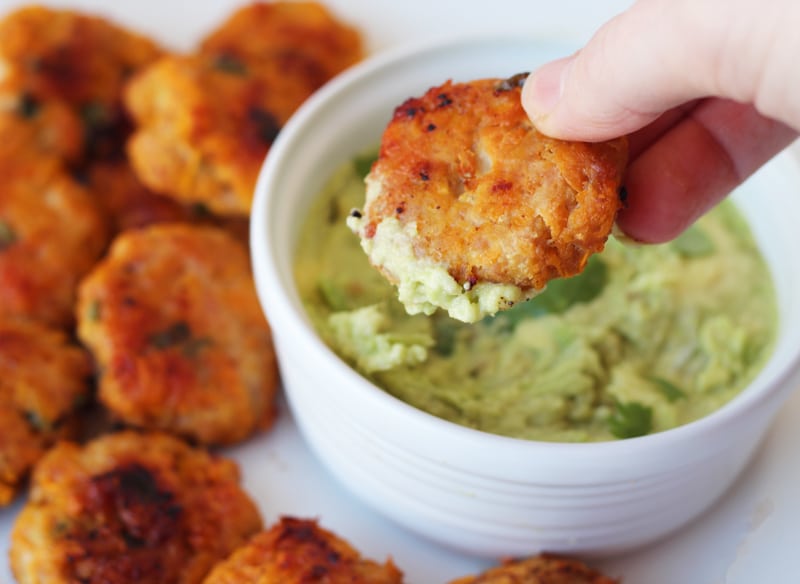The Best Foods For Nourishing Your Body with Hashimoto’s
Disclaimer: I am not a doctor, nutritionist, or registered dietitian. This information is not medical advice, diagnosis, or treatment. This is no cure for Hashimoto’s disease, but nourishing our body with real foods is always a good idea for thriving!
Hashimoto’s disease is an autoimmune disease that begins the same way every other one does… in the gut. Our gut houses our immune system and the gut integrity is crucial to whether or not we develop autoimmunity. Giving our gut nourishing foods that both help nourishes the gut itself and give our body proper nutrients is crucial to achieving balance and thriving.
Now, it’s always important to stress that food alone is not the savior. Yes, I said it. Food isn’t everything. It seriously cannot fix everything just like it’s not the one thing that caused the problem. Food provides the nutrients and it’s one of the few things that we can actually control, but it’s just a piece of it. For me, I had to address my digestion, heal my gut, focus on my adrenals, minerals, blood sugar, and the like before I could ever really make a real dent in healing.
You have to work one on one with a medical doctor to really address Hashimoto’s… food is just one piece of the puzzle for a healthy lifestyle.
Disclaimers, aside that food won’t solve all of your problems, healthy food is crucial for vibrancy! I always say that my number one biggest change in my health came from diet and it’s true. It gave me the most results the quickest, and really, it makes sense. Food can either be super inflammatory, or it can provide our body with nutrients needed to do its job correctly!

1.Organic Vegetables & Herbs
Veggies first, y’all.
I think regardless of what diet we follow, we can all agree that veggies and herbs are incredibly healing, and nutrient dense. Contrary to popular belief, the paleolithic man was not primarily meat based… they still ate mostly plants. Organic vegetables and herbs are full of phytonutrients that allow us to thrive. They give us energy, vitamins, minerals, and help the body heal. The general recommended value for a veggie-packed diet is up to 9 cups a day.
However, not all veggies are created equal. Especially when you’re dealing with Hashimoto’s there are two different veggie groups that I would be careful with… nightshades and goitrogens.
Nightshades are…
- Tomatoes
- Potatoes
- Peppers
- Eggplant
- Goji berries
After years with Hashimoto’s, I eventually discovered that nightshades were my worst trigger for flares. They’re often associated with joint pain, and they’re avoided on the autoimmune protocol for their tendency to cause inflammation. Not everyone reacts poorly, but it’s best to be cautious. I recommend many folks to avoid them for a period and reintroduce them to see how they react. If you’re like me, you’ll stay without
Goitrogenic vegetables include…
- Broccoli
- Cauliflower
- Kale
- Cabbage
- Brussels sprouts etc.
These vegetables are known to slow down your thyroid in large amounts and when eaten raw. However, the best way to combat this is to eat them cooked and in moderation raw. A kale salad here and there or some raw broccoli won’t kill you, but they really are best cooked.
So what vegetables are “safe”?
- Cooked gotrigentic veggies
- Artichoke
- Asparagus
- Beets
- Carrots
- Celery
- Chard
- Collards
- Ginger
- Jicama
- Lettuce
- Leeks
- Radishes
- Rutabaga
- etc.!
2. Vegetable Starches
We’re told that whole grains are healthy, full of fiber and that we should be eating more grains than vegetables. I highly beg to differ. Whole grains can be very inflammatory to the gut and not productive in an autoimmune state. I’m 95% grain free (I have rice on occasion) and know many others with autoimmunity who are the same are report great results.
However, we still need carbohydrates, especially with Hashimoto’s (read why here). That’s why we need to lean on vegetable starches rather than go grain heavy. What does that mean?
- Sweet potatoes
- Carrots
- Winter and summer squash
- Plantains
- Parsnips
- Rutabaga
- Turnips
As a recovered pizza and french fry queen, I always thought that there as no way I’d be able to live without them. Not only is that the wrong way to think about it, but it doesn’t have to be that way. Trust me, I am just as happy and much healthier munching on my parsnip fries.
3. Bone Broth & Fermented Foods
Seriously, you guys know I’m obsessed with bone broth. It’s basically the green juice of animal protein. It’s made from grass-fed bones cooked over 24-48 hours to draw out the vitamins, and minerals. The gelatin in broth helps heal damaged gut lining and the easy to digest minerals support our healing as a whole!
Here are some great recipes for bone broth:
Fermented veggies are another big one for gut health. Basically every indigenous culture had some sort of ferment, but we’ve completely stopped doing it. They’re rich in probiotics that feed our good gut bacteria and support a healthy gut and immune system! Fermented vegetables can be enjoyed in sauerkraut, kimchi, beet kvass, and basically anything else you can ferment.
Here are some great fermented food recipes:
- My Probiotic Beet Kvass
- No-Fail No-Pound Sauerkraut by Phoenix Helix
- Coconut Water Kefir by The Coconut Mama
These are traditional foods that are important to consume as often as possible to heal the gut, and daily if possible.
4. Sea Vegetables
These are another long forgotten traditional food that are packed with minerals, notably selenium and iodine which are both very low in our modern diets.
Iodine is very controversial in the Hashimoto’s community, and where most of the data leans is that high dose supplementation is not productive for Hashimoto’s and can actually be harmful. So though it’s important not to overdue sea vegetables as too much iodine can be harmful to Hashimoto’s, it’s also good to be mindful about adding in some seaweed, kelp or sea vegetables here and there to get some added minerals and a basic level of iodine.
My favorite way to add in sea veggies is to snack of seasnax a couple of times a week. They’re easy to snack on, and seriously yummy!
5. Healthy Fats
Fats are demonized for all of the wrong reason. Healthy fats are the building blocks of our hormones which regulate processes in the body and the thyroid!
Poor quality fats equals poor quality hormones and poor quality bile which equals poor quality digestion. It’s so important to make sure we’re eating enough fat, and the right fats to stay healthy and nourished. So what are healthy fats?
- Avocado
- Coconut
- Pasture raised animal fats (like tallow, lard, schmaltz, etc.)
- Grass-fed butter or ghee
- Olive oil
- Properly prepared nuts
6. Wild Caught Fish
Wild caught fish is a super food! It’s packed with anti-inflammatory Omega 3 fatty acids which is necessary for regulating inflammation.
I’m going to label an extreme caution with certain kinds of fish however… and that’s fish that’s high in mercury. I’m talking tuna (yes, even canned), shark, swordfish, orange roughy, and other large fish. Mercury poisoning is very real (actually, I have very high mercury that I’m working on detoxing from… more on that later) and it’s terrible for those of us with Hashimoto’s as mercury can inhibit selenium absorption which is crucial for a healthy thyroid. Be extremely cautious with these fish and only eat them on rare occasions.
So what are better fish to eat?
- Shellfish in moderation
- Salmon
- Sardines
- Cod
- Scallops
- Flounder
- Herring
- Trout
Salmon is one of my favorite foods, so I find it easy to get in lots of wild caught fish! I love enjoying salmon bowls or my AIP salmon cakes… yum!
7. Pastured Meats
Protein is important for cell health, mineral balance, and sustaining our hunger. The best option is always local, grass-fed, and pastured, but it’s important to do the best that you can when it comes to sourcing.
I recommend eating whatever your body wants for protein from beef, turkey, chicken, lamb, etc. Oh, and you can still get down with some chicken nuggets, my friend. Try my sweet potato chicken poppers made with chicken 😉
8. Lower Sugar Fruits
Like vegetables, certain fruits can be rich in vitamins and phytochemicals. However, they’re far more sugar-y than vegetables. Though sugar from fruit is much less harmful than refined cane sugar, it’s still important to not over do it on any sugar in general. It still spikes your blood sugar in excess which leads to inflammation and hormonal imbalance.
High sugar fruits like mango, bananas, grapes, or dates are fine treats in moderation.
However, in any disease state, it’s much better to steer towards lower sugar fruits like green apples, and berries!
I hope these tips about nourishing foods for Hashimoto’s have been helpful! Eat up, friends 🙂





Thank you so much for this very helpful article. What is your opinion on legumes, lentils etc.
Hi, I drink a smoothie everybody that has mixed fruits, plant proteins, greens powder and collagen from grass feed cows. Other articles I’ve read said do berries in moderation. My smoothies are my fiber, daily serving of my fruits and veggies and other nutrients. So am I harming myself by drinking a smoothie everyday? I used frozen fruits no sugar added non GMOs. They are cranberries, raspberries, blackberries, strawberries, apples, bananas, mango, kiwi, pomegranates, peaches, pineapples along with the powdered greens, plant proteins and the collagen. I add raw organic honey as well.
I would for sure work 1:1 with a nutritionist to look at the whole picture 🙂
I am reading everything I can since I was recently diagnosed with Hashimoto’s. I look forward to looking through your site. I didn’t see you mention Kefir as one of the important foods for healing. Just curious why?
Kefir is a good option too! No particular reason that I omitted it rather than there’s just a lot of options to list. All fermented foods have merit 🙂
Thanks for the info. What is your take on eggs and gut health. I’m having a hard time coming up w breakfast ideas besides smoothies.
It varies depending on the person, but this article may be helpful.
This article is so great! As someone recently diagnosed with Hashimoto’s, I had yet to find a normal, easy-to-understand article on great foods for healing that are easy to incorporate in daily life. THANK YOU!!